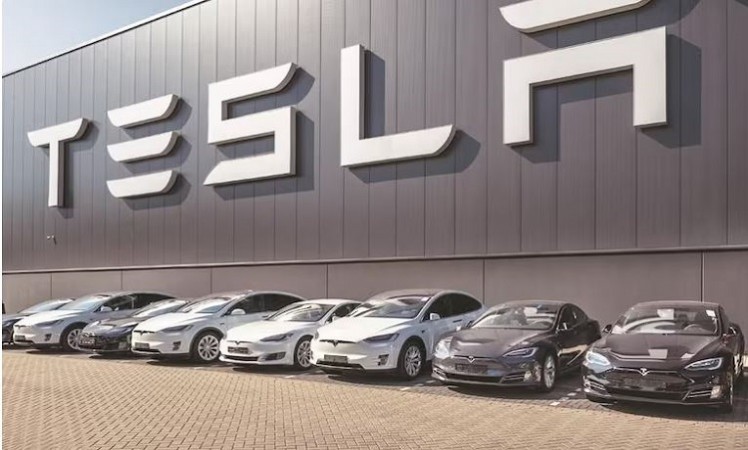
Tesla, under the visionary leadership of Elon Musk, has unveiled ambitious intentions to establish a battery storage facility within the burgeoning market of India, according to recent reports. The electric vehicle titan has reportedly taken strides towards crafting blueprints for the production and sale of battery storage systems within the subcontinent. In pursuit of this objective, the company has diligently compiled a proposal, seeking incentives that could facilitate the establishment of such a factory.
The cornerstone of Tesla's proposal revolves around bolstering India's battery storage capabilities through its renowned 'Powerwall' system. This sophisticated apparatus is engineered to amass and preserve electrical energy generated from solar panels or grid sources, ensuring its availability during the nocturnal hours or during instances of power shortages. Evidently, Tesla's vision extends beyond mere electric vehicles (EVs), as it endeavors to augment India's energy infrastructure.
However, the road to realization has not been without its challenges. In the pursuit of its goals, Tesla expressed a desire for various incentives to facilitate the construction of its battery storage factory. Regrettably, it encountered a somewhat frosty response from Indian officials who conveyed that such incentives might not be readily available. Instead, the Indian government proffered an alternative approach, suggesting the provision of subsidies to consumers who invest in these cutting-edge energy storage products. This, they argue, could help foster a more equitable business model.
As the proposal now rests in the hands of government authorities, Tesla is at a pivotal juncture in its quest to expand its footprint in India. The company has been engaged in discussions with Indian officials regarding the establishment of an electric vehicle manufacturing plant, with the aim of producing an affordable car priced around $24,000. Nevertheless, the Powerwall initiative represents a more comprehensive endeavor, signaling Tesla's determination to diversify its presence in the Indian market, transcending the realm of EVs.
India's energy landscape has traditionally leaned heavily on coal-based power generation. However, a paradigm shift is underway, as the nation fervently aspires to transition towards cleaner, non-fossil fuel energy sources. This ambitious vision includes an ambitious target to enhance energy capacity to a substantial 500 GW by the year 2030. Tesla's proposal for the Powerwall system aligns perfectly with India's evolving energy ambitions.
The Powerwall itself is a sleek, meter-high device engineered for domestic and light commercial use. It can be conveniently mounted in a garage or positioned outdoors adjacent to a residence. Should this proposal gain traction and evolve into a tangible venture, Tesla could potentially explore the development of more expansive solutions tailored to the requirements of Indian industries.
It's worth noting that the Powerwall is currently priced at over $5,500 (approximately Rs 45,000) in California, with additional costs associated with solar panels. Indian officials, in a candid dialogue with Tesla, have indicated that efforts to mitigate the cost of these battery storage products must be a central focus for the company.
As the Indian government deliberates over the proposal, the outcome remains uncertain. Nonetheless, Tesla's ambitions in India underscore a broader global trend toward sustainable energy solutions and a transition away from fossil fuels. This potential venture not only signifies the company's commitment to India's clean energy journey but also holds the promise of reshaping the nation's energy landscape for a greener and more sustainable future.